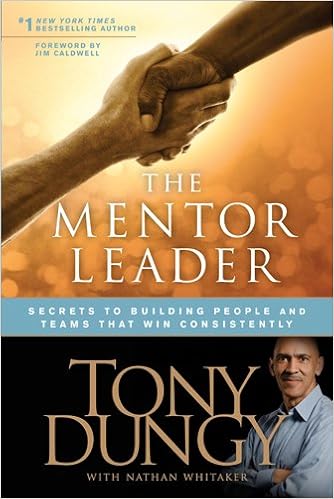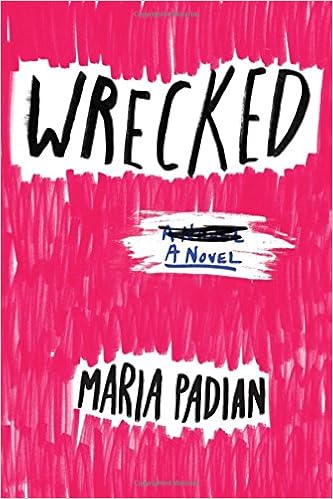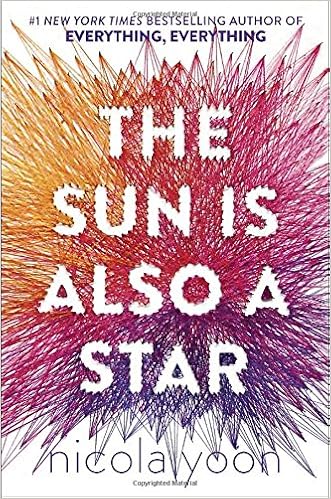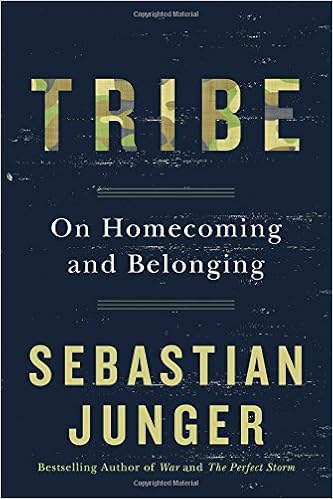Although I won't meet my goal of reading 165 books by midnight tonight, I did read quite a few great books this year worth sharing. Other personal goals including reading more with my ears and getting over my hesitancy to read non-fiction. I did accomplish those two, although it's taken me months to get through the audio version of Endurance (I think this has caused a bit of an audio reading slump). I categorized my favorites of this past year below:
 Picture Book: A Child of Books by Oliver Jeffers
Picture Book: A Child of Books by Oliver Jeffers
This book reminded me of words and their ability to lead us down thousands of different paths and journeys. Children and adults can appreciate the intertextuality of this book. Stories change us forever.
 Non-Fiction: What Doctors Feel: How Emotions Affect the Practice of Medicine by Danielle Ofri
Non-Fiction: What Doctors Feel: How Emotions Affect the Practice of Medicine by Danielle Ofri
This is a book that I seem to mention to every teacher friend of mine. There are so many parallels between the lives of doctors and teachers that we really need to explore how we can become allies. You can read more about this book by reading this blog post. I originally purchased this from Audible because it showed up during one of their $5 sales. I'm so glad I took a risk.
 Changed How I Live: The Mentor Leader: Secrets to Building People and Teams that Win Consistently by Tony Dungy
Changed How I Live: The Mentor Leader: Secrets to Building People and Teams that Win Consistently by Tony Dungy
This was given to me by my boss during the summer. While Dungy is a little more religious than authors that I typically read, the messages throughout this book are so good. He argues that quality leaders invest time and energy into people to make them so good that they can ultimately leave you. It's never about you, he argues. Your work is constantly about making other people better. Drop the ego and, instead, focus on supporting those around you.
Really Made Me Think: Tribe by Sebastian Junger
I first learned about this book because Ryan Holiday mentions it in The Obstacle Is the Way. That book could make this list easily, too. In Junger's book, he explores the trauma that soldiers face when they return home and comes to one unlikely conclusion: it's because they've spent so much time surrounded by people that their return to an isolated life style very well may be the cause of such high rates of PTSD. He explores the history of human kind and how we are designed to be such social creatures.
 Mentor Texts: Wrecked by Maria Padian and The Sun Is Also a Star by Nicola Yoon
Mentor Texts: Wrecked by Maria Padian and The Sun Is Also a Star by Nicola Yoon
 When I described my NaNoWriMo novel to Jen Vincent, she instantly recommended Wrecked. It's a book that I wish I could recommend to every student that's going to college. Jenny is sexually assaulted, and the book works through what really happened that night. There's a slow unveil after every chapter of details about that night in addition to multiple perspectives (This is the part that I wanted to mimic in my own writing). There were so
When I described my NaNoWriMo novel to Jen Vincent, she instantly recommended Wrecked. It's a book that I wish I could recommend to every student that's going to college. Jenny is sexually assaulted, and the book works through what really happened that night. There's a slow unveil after every chapter of details about that night in addition to multiple perspectives (This is the part that I wanted to mimic in my own writing). There were so
many times when I wanted to throw this book across the room and scream.
A student also purchased Nicola Yoon's book for me for Christmas. What I loved about this book is the intermittent backstories of the characters that Natasha and Daniel meet along the way. Taking course over one day, these two characters fall in love by a chance encounter.
 Book I Counted down Days For: Gemina by Amie Kaufman and Jay Kristoff
Book I Counted down Days For: Gemina by Amie Kaufman and Jay Kristoff
A colleague and I anxiously awaited Gemina, the second book in The Illuminae Files series. If you haven't read Illuminae, the first in the series, get it now. The alternating perspectives and collection of documents that manage to tell a compelling story make this series hard to put down. If I had my way, this series would be a foundation for the science fiction and fantasy course I have taught in the past.
Book Recommendation: Open Mic: Riffs on Life Between Cultures in Ten Voices

I'll admit that this wasn't a formal recommendation at first. My friend Beth and I were browsing Candlewick's booth at NCTE and I saw it in her bag. When I saw they had a copy for sale, I knew I had to get it. This book is one worth reading as we all try to figure out how to approach race and racism and who has authority in conversations. The "ground rules" at the beginning alone are worth reading and will probably become a text my students will read if I ever have them write pieces about their cultures.
Pedagogical Implications: Writing with Mentors by Allison Marchetti and Rebekah O'Dell
I've always been a fan of using mentor texts, but it's this book that prompted me to make a promise to myself: never assign a writing task for students without showing them mentors along the way. The mentor texts can be used during all stages of writing. I use this chart that's available in the free web sample from Heinemann often in my planning.
 Picture Book: A Child of Books by Oliver Jeffers
Picture Book: A Child of Books by Oliver JeffersThis book reminded me of words and their ability to lead us down thousands of different paths and journeys. Children and adults can appreciate the intertextuality of this book. Stories change us forever.
 Non-Fiction: What Doctors Feel: How Emotions Affect the Practice of Medicine by Danielle Ofri
Non-Fiction: What Doctors Feel: How Emotions Affect the Practice of Medicine by Danielle OfriThis is a book that I seem to mention to every teacher friend of mine. There are so many parallels between the lives of doctors and teachers that we really need to explore how we can become allies. You can read more about this book by reading this blog post. I originally purchased this from Audible because it showed up during one of their $5 sales. I'm so glad I took a risk.
 Changed How I Live: The Mentor Leader: Secrets to Building People and Teams that Win Consistently by Tony Dungy
Changed How I Live: The Mentor Leader: Secrets to Building People and Teams that Win Consistently by Tony DungyThis was given to me by my boss during the summer. While Dungy is a little more religious than authors that I typically read, the messages throughout this book are so good. He argues that quality leaders invest time and energy into people to make them so good that they can ultimately leave you. It's never about you, he argues. Your work is constantly about making other people better. Drop the ego and, instead, focus on supporting those around you.
Really Made Me Think: Tribe by Sebastian Junger
I first learned about this book because Ryan Holiday mentions it in The Obstacle Is the Way. That book could make this list easily, too. In Junger's book, he explores the trauma that soldiers face when they return home and comes to one unlikely conclusion: it's because they've spent so much time surrounded by people that their return to an isolated life style very well may be the cause of such high rates of PTSD. He explores the history of human kind and how we are designed to be such social creatures.
 Mentor Texts: Wrecked by Maria Padian and The Sun Is Also a Star by Nicola Yoon
Mentor Texts: Wrecked by Maria Padian and The Sun Is Also a Star by Nicola Yoon When I described my NaNoWriMo novel to Jen Vincent, she instantly recommended Wrecked. It's a book that I wish I could recommend to every student that's going to college. Jenny is sexually assaulted, and the book works through what really happened that night. There's a slow unveil after every chapter of details about that night in addition to multiple perspectives (This is the part that I wanted to mimic in my own writing). There were so
When I described my NaNoWriMo novel to Jen Vincent, she instantly recommended Wrecked. It's a book that I wish I could recommend to every student that's going to college. Jenny is sexually assaulted, and the book works through what really happened that night. There's a slow unveil after every chapter of details about that night in addition to multiple perspectives (This is the part that I wanted to mimic in my own writing). There were so many times when I wanted to throw this book across the room and scream.
A student also purchased Nicola Yoon's book for me for Christmas. What I loved about this book is the intermittent backstories of the characters that Natasha and Daniel meet along the way. Taking course over one day, these two characters fall in love by a chance encounter.
 Book I Counted down Days For: Gemina by Amie Kaufman and Jay Kristoff
Book I Counted down Days For: Gemina by Amie Kaufman and Jay KristoffA colleague and I anxiously awaited Gemina, the second book in The Illuminae Files series. If you haven't read Illuminae, the first in the series, get it now. The alternating perspectives and collection of documents that manage to tell a compelling story make this series hard to put down. If I had my way, this series would be a foundation for the science fiction and fantasy course I have taught in the past.
Book Recommendation: Open Mic: Riffs on Life Between Cultures in Ten Voices

I'll admit that this wasn't a formal recommendation at first. My friend Beth and I were browsing Candlewick's booth at NCTE and I saw it in her bag. When I saw they had a copy for sale, I knew I had to get it. This book is one worth reading as we all try to figure out how to approach race and racism and who has authority in conversations. The "ground rules" at the beginning alone are worth reading and will probably become a text my students will read if I ever have them write pieces about their cultures.
Pedagogical Implications: Writing with Mentors by Allison Marchetti and Rebekah O'Dell
I've always been a fan of using mentor texts, but it's this book that prompted me to make a promise to myself: never assign a writing task for students without showing them mentors along the way. The mentor texts can be used during all stages of writing. I use this chart that's available in the free web sample from Heinemann often in my planning.


Thank you so much for sharing this list. I definitely want to look into several of the titles. I enjoy how you used books from other fields (medicine and sports) to make connections to teaching.
ReplyDeleteRole of teacher has been alters from information supplier to developing thinking process of a student's.
ReplyDeletehttp://www.supremedissertation.co.uk/